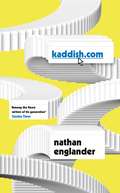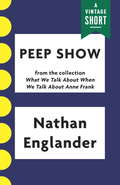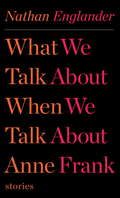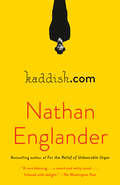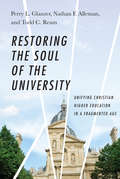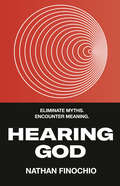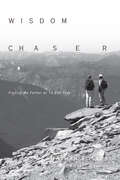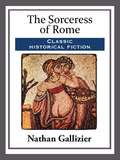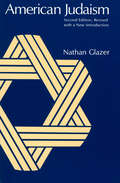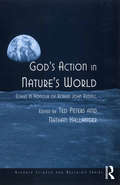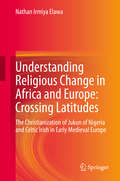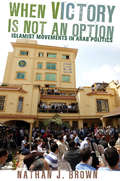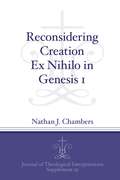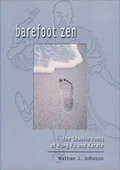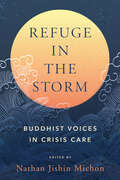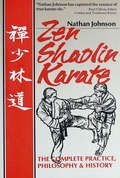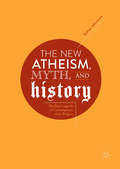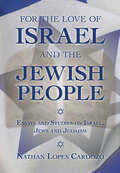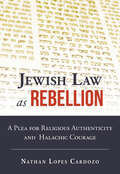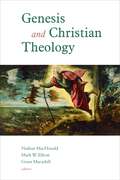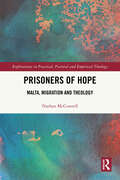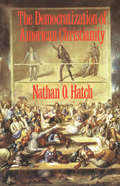- Table View
- List View
Kaddish.com
by Nathan EnglanderLarry is the secular son in a family of Orthodox Brooklyn Jews. When his father dies, it's his responsibility to recite the Kaddish, the Jewish prayer for the dead, every day for eleven months. To the horror and dismay of his sister, Larry refuses - imperilling the fate of his father's soul. To appease her, Larry hatches an ingenious if cynical plan, hiring a stranger through a website called kaddish.com to recite the prayer and shepherd his father's soul safely to rest. This is Nathan Englander's freshest and funniest work to date - a satire that touches, lightly and with unforgettable humour, on the conflict between religious and secular worlds, and the hypocrisies that run through both.
Peep Show (A Vintage Short)
by Nathan EnglanderA Vintage Shorts "Short Story Month" Selection Allen Fein-- née Ari Feinberg--is on his way to Port Authority when he hears it: "Girls," the hawker says. "Three-hundred-and-sixty-degree all-around stage." This is the Times Square Allen remembers. But he's a married man now. Well, maybe one little peek . . . From one of the most dazzling voices in contemporary literature, "Peep Show" is a funny, surprising, surreal story of sexual longing and the deeper shadows of desire. In the peep show, you never know who's behind the curtain. A selection from the acclaimed volume What We Talk About When We Talk About Anne Frank, winner of the Frank O'Connor International Short Story Award and a finalist for the Pulitzer Prize. An eBook short.
What We Talk About When We Talk About Anne Frank: Stories
by Nathan EnglanderThese eight new stories from the celebrated novelist and short-story writer Nathan Englander display a gifted young author grappling with the great questions of modern life, with a command of language and the imagination that place Englander at the very forefront of contemporary American fiction. The title story, inspired by Raymond Carver's masterpiece, is a provocative portrait of two marriages in which the Holocaust is played out as a devastating parlor game. In the outlandishly dark "Camp Sundown" vigilante justice is undertaken by a group of geriatric campers in a bucolic summer enclave. "Free Fruit for Young Widows" is a small, sharp study in evil, lovingly told by a father to a son. "Sister Hills" chronicles the history of Israel's settlements from the eve of the Yom Kippur War through the present, a political fable constructed around the tale of two mothers who strike a terrible bargain to save a child. Marking a return to two of Englander's classic themes, "Peep Show" and "How We Avenged the Blums" wrestle with sexual longing and ingenuity in the face of adversity and peril. And "Everything I Know About My Family on My Mother's Side" is suffused with an intimacy and tenderness that break new ground for a writer who seems constantly to be expanding the parameters of what he can achieve in the short form. Beautiful and courageous, funny and achingly sad, Englander's work is a revelation.
kaddish.com: A novel
by Nathan EnglanderThe celebrated Pulitzer finalist and prize-winning author of Dinner at the Center of the Earth and What We Talk About When We Talk About Anne Frank delivers his best work yet, a streamlined comic masterpiece about a son’s failure to say Kaddish for his father. Larry is the secular son in a family of Orthodox Brooklyn Jews. When his father dies, it’s his responsibility to recite the Kaddish, the Jewish prayer for the dead, every day for eleven months. To the horror and dismay of his sister, Larry refuses—imperiling the fate of his father’s soul. To appease her, Larry hatches an ingenious if cynical plan, hiring a stranger through a website called kaddish.com to recite the prayer and shepherd his father’s soul safely to rest. Sharp, irreverent, hilarious, and wholly irresistible, Englander’s tale of a son who makes a diabolical compromise ingeniously captures the tensions between tradition and modernity—a book to be devoured in a single sitting whose pleasures and provocations will be savored long after.
Restoring the Soul of the University: Unifying Christian Higher Education in a Fragmented Age
by Todd C. Ream Perry L. Glanzer Nathan F. AllemanChristianity Today's 2018 Book of the Year Award of Merit - Politics/Public Life Has the American university gained the whole world but lost its soul? In terms of money, prestige, power, and freedom, American universities appear to have gained the academic world. But at what cost? We live in the age of the fragmented multiversity that has no unifying soul or mission. The multiversity in a post-Christian culture is characterized instead by curricular division, the professionalization of the disciplines, the expansion of administration, the loss of community, and the idolization of athletics. The situation is not hopeless. According to Perry L. Glanzer, Nathan F. Alleman, and Todd C. Ream, Christian universities can recover their soul—but to do so will require reimagining excellence in a time of exile, placing the liberating arts before the liberal arts, and focusing on the worship, love, and knowledge of God as central to the university. Restoring the Soul of the University is a pioneering work that charts the history of the university and casts an inspiring vision for the future of higher education.
Hearing God: Eliminate Myths. Encounter Meaning.
by Nathan FinochioHillsong New York City pastor identifies and deconstructs the most common myths about how God communicates - and then provides clear tools to accurately decipher and follow the voice of God in your life.So many people wish that God would audibly weigh in on life's greatest questions of calling, meaning, and purpose. What's crazy is that God is weighing in on those questions. We just haven't learned to listen. Nathan Finochio believes that God is constantly communicating with this world he's created. We simply aren't following the right advice when it comes to hearing what he has to say. Through biblical teaching and true life stories, Hearing God empowers and enables readers to separate fact from fiction, myth from meaning, and truly understand what God is saying to them about big decisions and daily living.
Wisdom Chaser: Finding My Father at 14,000 Feet
by Nathan FosterCelebration of Discipline,Celebration of DisciplineLonging for God.
The Sorceress of Rome
by Nathan GallizierThe third rebellion of Johannes Crescentius, Senator of Rome, enacted after the death of the pontiff and the election of Sylvester II, forms but the prelude to the great drama whose final curtain was to fall upon the doom of the third Otto, of whose love for Stephania, the beautiful wife of Crescentius, innumerable legends are told in the old monkish chronicles and whose tragic death caused a lament to go throughout the world of the Millennium.
American Judaism (The Chicago History of American Civilization)
by Nathan GlazerFirst published in 1957, Nathan Glazer's classic, historical study of Judaism in America has been described by the New York Times Book Review as "a remarkable story . . . told briefly and clearly by an objective historical mind, yet with a fine combination of sociological insight and religious sensitivity." Glazer's new introduction describes the drift away from the popular equation of American Judaism with liberalism during the last two decades and considers the threat of divisiveness within American Judaism. Glazer also discusses tensions between American Judaism and Israel as a result of a revivified Orthodoxy and the disillusionment with liberalism. "American Judaism has been arguably the best known and most used introduction to the study of the Jewish religion in the United States. . . . It is an inordinately clear-sighted work that can be read with much profit to this day."—American Jewish History (1987)
God's Action in Nature's World: Essays in Honour of Robert John Russell (Routledge Science and Religion Series)
by Nathan HallangerIn 1981 Robert John Russell founded what would become the leading center of research at the interface of science and religion, the Center for Theology and the Natural Sciences. Throughout its twenty-five year history, CTNS under Russell's leadership has continued to guide and further the dialogue between science and theology. Russell has been an articulate spokesperson in calling for "creative mutual interaction" between the two fields. God's Action in Nature's World brings together sixteen internationally-recognized scholars to assess Robert Russell's impact on the discipline of science and religion. Focusing on three areas of Russell's work - methodology, cosmology, and divine action in quantum physics - this book celebrates Robert John Russell's contribution to the interdisciplinary engagement between the natural sciences and theology.
Understanding Religious Change in Africa and Europe: The Christianization of Jukun of Nigeria and Celtic Irish in Early Medieval Europe
by Nathan Irmiya ElawaThis book examines and compares the religious experience of an African group with a European one. It offers an ethnographical investigation of the Jukun of north central Nigeria. The author also organically weaves into the narrative the Christianization of the Irish in a comparative fashion. Throughout, he makes the case for an African Christianity connected to a Celtic Irish Christianity and vice-versa -- as different threads in a tapestry. This work is a product of a synthesis of archival research in three continents, interviews with surviving first-generation Christians who were active practitioners of the Jukun indigenous religion, and with former missionaries to the Jukun. On the Irish side, it draws from extant primary sources and interviews with scholars in Celtic Irish studies. In addition, pictures, diagrams, and excerpts from British colonial and missionary journals provide a rich contextual understanding of Jukun religious life and practices. The author is among the emerging voices in the study of World Christianity who advocate for the reality of "poly-centres" for Christianity. This perspective recognizes voices from the Global South in the expansion of Christianity. This book serves as a valuable resource for historians, anthropologists, theologians, and those interested in missions studies, both scholars and lay readers seeking to deepen their understanding of World Christianity.
Slave and Citizen: The Life of Frederick Douglass
by Nathan Irvin HugginsBy 1841, many Bostonians and some New Englanders in other parts of the United States had become abolitionists. They considered the South's peculiar institution incompatible with the republican nature of their country.
When Victory Is Not An Option: Islamist Movements in Arab Politics
by Nathan J. BrownThroughout the Arab world, Islamist political movements are joining the electoral process. This change alarms some observers and excites other. In recent years, electoral opportunities have opened, and Islamist movements have seized them. But those opportunities, while real, have also been sharply circumscribed. Elections may be freer, but they are not fair. The opposition can run but it generally cannot win. Semiauthoritarian conditions prevail in much of the Arab world, even in the wake of the Arab Spring. How do Islamist movements change when they plunge into freer but unfair elections? How do their organizations (such as the Muslim Brotherhood) and structures evolve? What happens to their core ideological principles? And how might their increased involvement affect the political system?In When Victory Is Not an Option, Nathan J. Brown addresses these questions by focusing on Islamist movements in Egypt, Jordan, Kuwait, and Palestine. He shows that uncertain benefits lead to uncertain changes. Islamists do adapt their organizations and their ideologies do bend-some. But leaders almost always preserve a line of retreat in case the political opening fizzles or fails to deliver what they wish. The result is a cat-and-mouse game between dominant regimes and wily movements. There are possibilities for more significant changes, but to date they remain only possibilities.
Reconsidering Creation Ex Nihilo in Genesis 1 (Journal of Theological Interpretation Supplements #19)
by Nathan J. ChambersThere is a broad consensus among biblical scholars that creation ex nihilo (from nothing) is a late Hellenistic concept with little inherent connection to Genesis 1 and other biblical creation texts. In this book, Nathan J. Chambers forces us to reconsider the question, arguing in favor of reading this chapter of the Bible in terms of ex nihilo creation and demonstrating that there is a sound basis for the early Christian development of the doctrine.Drawing on the theology of Augustine of Hippo and Thomas Aquinas, Chambers considers what the ex nihilo doctrine means and does in classical Christian dogma. He examines ancient Near Eastern cosmological texts that provide a potential context for reading Genesis 1. Recognizing the distance between the possible historical and theological frameworks for interpreting the text, he illuminates how this doctrine developed within early Christian thought as a consequence of the church’s commitment to reading Genesis 1 as part of Christian Scripture. Through original close readings of the chapter that engage critically with the work of Jon Levenson, Hermann Gunkel, and Brevard Childs, Chambers demonstrates that, far from precluding interpretive possibilities, reading Genesis 1 in terms of creation from nothing opens up a variety of interpretive avenues that have largely been overlooked in contemporary biblical scholarship.Timely and innovative, this book makes the case for a new (or recovered) framework for reading Genesis 1 that will appeal to biblical studies scholars and seminarians.
Barefoot Zen: The Shaolin Roots of Kung Fu and Karate
by Nathan J. JohnsonJohnson makes the Shaolin way legacy accessible to all, releasing the art from the clutches of popular images and painful concerns about self-defense.Barefoot Zen is a brave new approach to the martial arts, which clearly demonstrates that the traditional movements of both Kung Fu and Karate, contained in the solo choreographed sequences of movements known as forms (or kata), grew out of the spiritual practices of the Shaolin order of Buddhist monks and nuns. Nathan Johnson explains that this mystical and non-violent teaching is a profound and beautiful expression of Chan (Zen) Buddhism and its pursuit of wisdom, peace, and enlightenment. Contrary to popular assumption, he contends that it was never intended to be an actual means of self-defense. Barefoot Zen bridges the gap between Kung Fu and Karate, and reveals their common origin through the disclosure of vital research material on three of the world’s most important Karate kata.Part I explains the spiritual disciplines that contributed to what we know as the martial arts. Part II explains the creation of the art along with practical instruction for performing kata. Part III explains the formation of many of the world’s Kung Fu styles.We learn that the original “empty hand art” was used as a method of kinetic meditation between pairs and was designed as a practical tool to assist practitioners in transcending the fear and insecurity of everyday living. The legendary courage of the Shaolin (Chan/Zen) order was not developed by fighting with enemies, but by not fighting!The Shaolin teaching was designed to free us from fear, the only true enemy.
Refuge in the Storm: Buddhist Voices in Crisis Care
by Nathan Jishin Michon24 wise and compassionate Buddhist perspectives on crisis care—contemplative practices and spiritual principles to help individuals, families, and communities in crisis and the care providers who support them.Refuge in the Storm presents a wide range of Buddhist perspectives on crisis care. Written by experienced chaplains, spiritual teachers, psychotherapists, pastoral counselors, medical providers, and scholars, the essays in this timely anthology explore a spectrum of personal and global crises: climate chaos, COVID, natural disasters, racism, social inequity, illness, and dying.Drawing on Buddhist principles and practices, these essays offer a wealth of insights for supporting individuals and communities in crisis as well as preventing fatigue and burnout in care providers. The 24 essays in this anthology show readers how to: • Provide spiritual companionship to ill, aging, and dying clients• Infuse crisis care with mindfulness, compassion, prayer, and even playfulness• Prevent burnout with self-care practices rooted in Buddhist principles • Develop self-awareness and self-knowledge as a care provider• Pursue the path of Buddhist chaplaincyEdited by Nathan Jishin Michon—Buddhist priest, chaplain, meditation teacher, and editor of A Thousand Hands: A Guidebook to Caring for Your Buddhist Community—this one-of-a-kind anthology helps care providers develop the compassion, attention, wisdom, and presence needed to support individuals and communities to move through suffering into healing.
Zen Shaolin Karate
by Nathan JohnsonIn Zen Shaolin Karate, Johnson explains and illustrates in precise detail every subtle movement of two of karate's most common kata, and provides historical testimony for his explanations by integrating his findings with Zen philosophy. The author's unique interpretations of the Nai Fuan Chin and Saam Chin kata will destroy the barriers separating karate, kung fu, and aikido, and will revolutionize how kata are applied in all karate styles.
Zen Shaolin Karate
by Nathan JohnsonIn Zen Shaolin Karate, Johnson explains and illustrates in precise detail every subtle movement of two of karate's most common kata, and provides historical testimony for his explanations by integrating his findings with Zen philosophy. The author's unique interpretations of the Nai Fuan Chin and Saam Chin kata will destroy the barriers separating karate, kung fu, and aikido, and will revolutionize how kata are applied in all karate styles.
The New Atheism, Myth, and History: The Black Legends of Contemporary Anti-Religion
by Nathan JohnstoneThis book examines the misuse of history in New Atheism and militant anti-religion. It looks at how episodes such as the Witch-hunt, the Inquisition, and the Holocaust are mythologized to present religion as inescapably prone to violence and discrimination, whilst the darker side of atheist history, such as its involvement in Stalinism, is denied. At the same time, another constructed history—that of a perpetual and one-sided conflict between religion and science/rationalism—is commonly used by militant atheists to suggest the innate superiority of the non-religious mind. In a number of detailed case studies, the book traces how these myths have long been overturned by historians, and argues that the New Atheism’s cavalier use of history is indicative of a troubling approach to the humanities in general. Nathan Johnstone engages directly with the God debate at an academic level and contributes to the emerging study of non-religion as a culture and an identity.
For the Love of Israel and the Jewish People: Essays and Studies on Israel, Jews and Judaism
by Nathan Lopes CardozoThe unique, almost mysterious connection between the land of Israel and the Jewish people is at the heart of this remarkable collection of essays. Author Nathan Lopes Cardozo addresses questions such as How is it that contrary to all the laws of history, the Jewish people outlived so many powerful empires? How has such a tiny nation been able to make an unprecedented contribution to the well-being of all of humankind? Why did the Jewish people become a source of endless irritation to those who opposed their ethical teachings? and How can the State of Israel rediscover its Jewish identity as the source of its greatest blessing and hope? As he explores these issues, Lopes Cardozo explains how the Jews, even in their exile, were able to develop almost a portable homeland, taking the spirit and the concept of Israel with them wherever they went.
Jewish Law as Rebellion: A Plea for Religious Authenticity and Halachic Courage
by Nathan Lopes CardozoJewish Law as Rebellion is unconventional and controversial in its approach to the world of Jewish Law and its response to religious crises. The book delves into the contemporary application and development of halacha and pointedly protests many accepted methods and ideals, offering new solutions to existing halachic dilemmas. Rabbi Cardozo discusses hot topics such as same-sex marriage, conversion, and religion in the State of Israel and presents a critical analysis and explanation of the application of halacha.
Path of the Moonlit Hedge: Discovering the Magick of Animistic Witchcraft
by Nathan M. HallRewild Your Soul and Deepen Your Relationship with Our Interconnected WorldDiscover an exciting approach to witchcraft that teaches you how to see and work with the life in all things, from animals and plants to rocks, rivers, and beyond. Nathan M. Hall provides an in-depth and thoughtful exploration of animism, guiding you down the path of the moonlit hedge with more than thirty exercises that support the needs of your wild soul.This book builds your magickal foundation through journeying and trancework, helping you connect with natural energies and patterns of the earth. You’ll meet and partner with spirits of the land, perform meditations and spells that strengthen your commitment to the craft, and learn how to cross the hedge (enter the spirit world) to participate in the Witches' Sabbat. By adopting this magickal worldview, you can create balance within yourself and empower your work as a witch.
Genesis and Christian Theology
by Nathan MacDonald, Mark W. Elliott, Grant MacaskillGenesis and Christian Theology contributes significantly to the renewed convergence of biblical studies and systematic theology -- two disciplines whose relational disconnect has adversely affected not only the academy but also the church as a whole. In this book twenty-one noted scholars consider the fascinating ancient book of Genesis in dialogue with historical and contemporary theological reflection. Their essays offer new vistas on familiar texts, reawakening past debates and challenging modern clichés.Contributors:Gary A. Anderson Knut Backhaus Richard Bauckham Pascal Daniel Bazzell William P. Brown Stephen B. Chapman Ellen T. Charry Matthew Drever Mark W. Elliott David Fergusson Brandon Frick Trevor Hart Walter J. Houston Christoph Levin Nathan MacDonald Eric Daryl Meyer R. Walter L. Moberly Michael S. Northcott Karla Pollmann R. R. Reno Timothy J. Stone
Prisoners of Hope: Malta, Migration and Theology (Explorations in Practical, Pastoral and Empirical Theology)
by Nathan McConnellPrisoners of Hope focuses on ecclesiological and practical theological responses to migration, asylum-seeking, and refugee integration and assimilation. It considers the relationship between the church and the nation-state relative to political asylum by questioning the various responses of Christians who advocate for refugees and asylum-seekers in their spheres of influence. Prisoners of Hope features how the Church might begin to appraise and address the various socio-political strategies employed by nation-states, which situate migrants in a form of “quasi-political” status as they move from one place to another. It holds key benefits for exploring the philosophical and theological intersections of Dietrich Bonhoeffer, Giorgio Agamben, and Seyla Benhabib and those attempting to ask about treatment of the refugees and asylum-seekers. Prisoners of Hope will be of particular interest to those attempting scholarly research in the areas of theology, religion, and migration studies as it investigates the phenomenological experiences of refugees going “in” and “out” of detention as well as arguments relating to porous borders within sovereign national entities. Initially, the book engages definitions of migration, moving onto concepts of State of Exception and Homo Sacer, and analysing arguments regarding porous borders and cosmopolitanism. Of specific benefit for Christian theology is the second half of the book, which examines the importance of vicarious witnessing, prayer, voicing inclusion, worshipping communities, and the inclusion of the “other.” Overall, Prisoners of Hope is a pertinent addition to those discussing concepts of national sovereignty, migrant assimilation, asylum-seeking, hospitality, and the juxtapositioning of the foreigner within the often, intricate dialogues associated with political entry.
The Democratization of American Christianity
by Nathan O. HatchIn this prize-winning book Nathan O. Hatch offers a provocative reassessment of religion and culture in the early days of the American republic, arguing that during this period American Christianity was democratized and common people became powerful actors on the religious scene. Hatch examines five distinct traditions or mass movements that emerged early in the nineteenth century—the Christian movement, Methodism, the Baptist movement, the black churches, and the Mormons—showing how all offered compelling visions of individual potential and collective aspiration to the unschooled and unsophisticated. "Rarely do works of scholarship deserve as much attention as this one. The so-called Second Great Awakening was the shaping epoch of American Protestantism, and this book is the most important study of it ever published."—James Turner, Journal of Interdisciplinary History "The most powerful, informed, and complex suggestion yet made about the religious, political, and psychic 'opening' of American life from Jefferson to Jackson. . . . Hatch's reconstruction of his five religious mass movements will add popular religious culture to denominationalism, church and state, and theology as primary dimensions of American religious history."—Robert M. Calhoon, William and Mary Quarterly "Hatch's revisionist work asks us to put the religion of the early republic in a radically new perspective. . . . He has written one of the finest books on American religious history to appear in many years."—James H. Moorhead, Theology Today The manuscript version of this book was awarded the 1988 Albert C. Outler Prize in Ecumenical Church History from the American Society of Church History Awarded the 1989 book prize of the Society for Historians of the Early American Republic for the best book in the history of the early republic (1789-1850) Co-winner of the 1990 John Hope Franklin Publication Prize given by the American Studies Association for the best book in American Studies Nathan O. Hatch is professor of history and vice president for Graduate Studies and Research at the University of Notre Dame.
